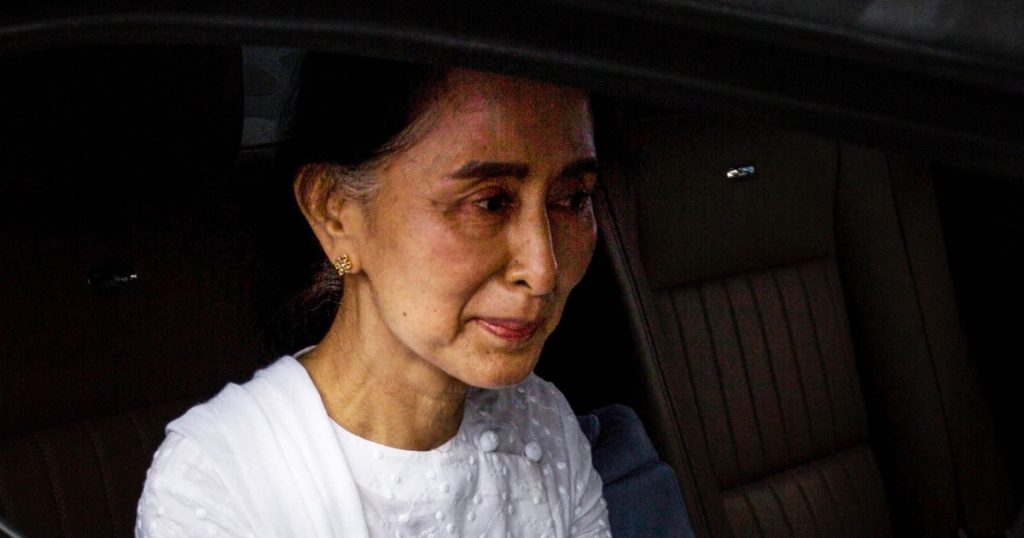Myanmar’s detained former leader and Nobel laureate, Aung San Suu Kyi, has been transferred from prison to house arrest due to extreme heat, according to a statement from a spokesperson for the military government. The spokesperson, Maj. Gen. Zaw Min Tun, explained that this move was intended to protect Suu Kyi and other elderly prisoners from heatstroke. Suu Kyi, 78, has been in custody since the military overthrew her government in a coup in 2021. She is facing multiple charges, including treason and bribery, which could result in a 27-year prison sentence. Despite her detention, Suu Kyi has continued to deny the allegations against her.
In February, Suu Kyi’s son, Kim Aris, reported that she was being held in solitary confinement but remained in good spirits. He also mentioned concerns about her declining health. World leaders and pro-democracy activists have been advocating for her release since the coup took place. The National Unity Government (NUG), a shadow government formed by opponents of the military regime, has also called for the unconditional release of Suu Kyi and U Win Myint, Myanmar’s ousted president, who has also been placed under house arrest. The spokesperson for the NUG emphasized that while the move from prison to house arrest is a positive development, both individuals must be completely freed.
The international community has been closely monitoring the situation in Myanmar since the military takeover. Several countries have imposed sanctions on the military junta, calling for a return to democracy and the release of all political prisoners, including Suu Kyi. The United Nations has condemned the military’s actions and urged for a peaceful resolution to the crisis. Activists within Myanmar and around the world continue to demand justice for those detained and express their support for the pro-democracy movement in the country.
The situation in Myanmar remains tense, with ongoing protests and civil disobedience campaigns challenging the authority of the military government. Despite the repression and human rights abuses reported by international organizations, the people of Myanmar have shown resilience and determination in their fight for democracy. The military’s crackdown on dissent has led to a humanitarian crisis, with thousands of civilians being displaced and facing violence. The United Nations and other humanitarian organizations are working to provide aid and support to those affected by the conflict.
As the political crisis in Myanmar continues to unfold, there are growing concerns about the impact on the country’s economy and stability. The military takeover has disrupted governance and led to widespread uncertainty, with businesses, investors, and international partners hesitant to engage with the regime. The humanitarian situation is deteriorating, with food and medical supplies becoming scarce in many areas. The international community is being urged to provide assistance to the people of Myanmar and support efforts to restore democracy and human rights in the country.
Despite the challenges facing Myanmar, there is hope for a peaceful resolution to the crisis. The NUG and other opposition groups are calling for dialogue with the military and a return to civilian rule. International pressure on the military junta is increasing, with calls for targeted sanctions and diplomatic measures to push for democratic reforms. The people of Myanmar continue to show courage and resilience in the face of adversity, mobilizing for change and advocating for a free and fair society. As the world watches the situation in Myanmar unfold, there is a growing recognition of the need for solidarity and support for those fighting for democracy and justice in the country.


